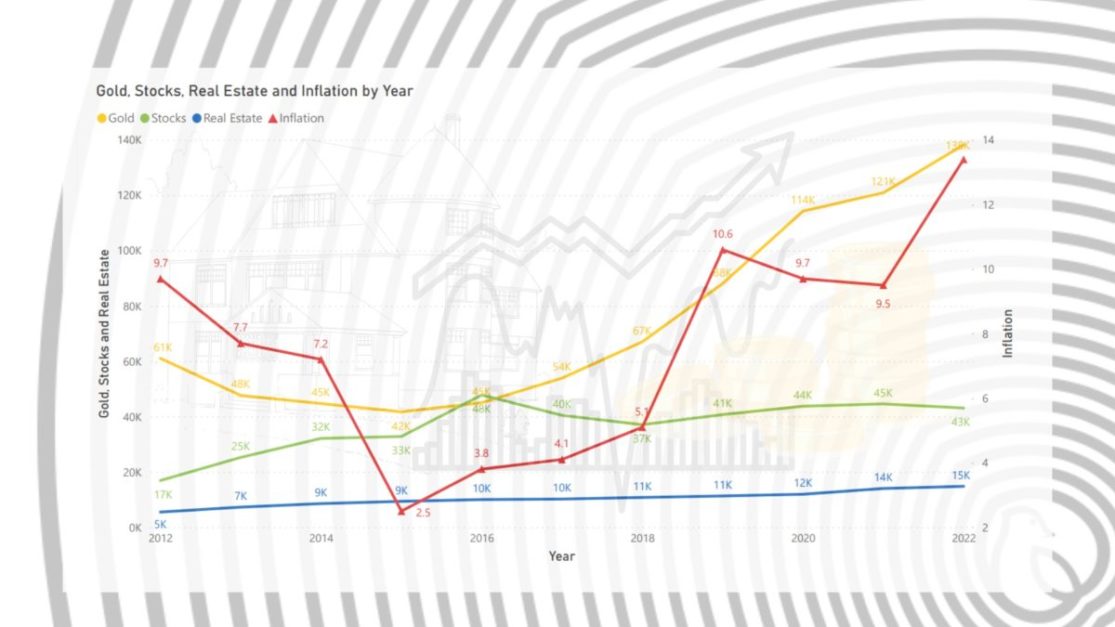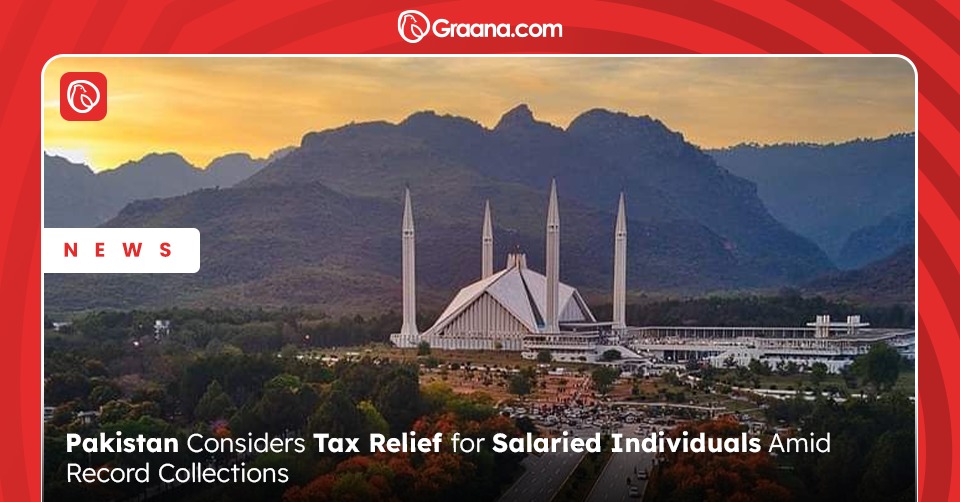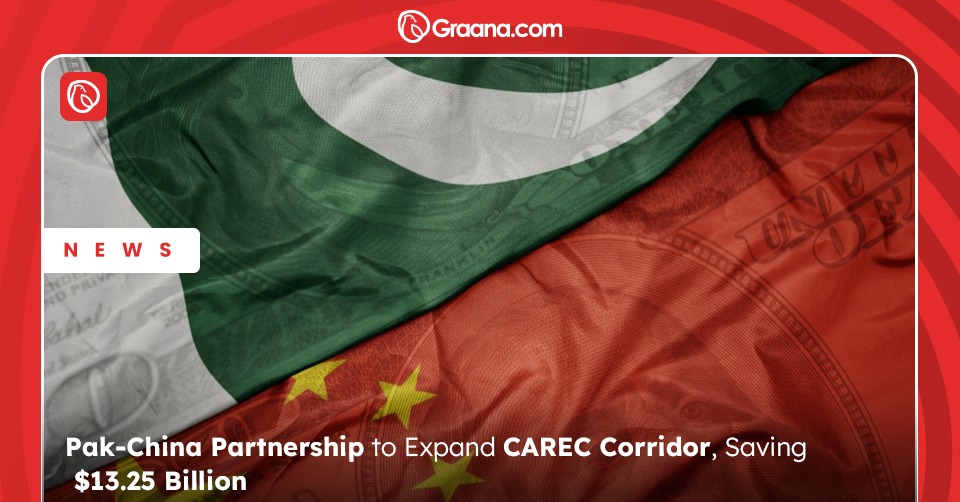Real estate economics show that the current stable condition of the sector can be a foundation for future establishment of a substantial market. The booming percentages in real estate during the previous government were due to the befitting tax reforms and policies introduced by the Ex-Prime Minister.
Lower rates of tax and higher rates of interest stemmed from the exceptional rates of return and innumerable amounts of tax collection.
The current government has put forth the recommendations for the fiscal budget, focusing mainly on short term sustainability and long term progression.
Graana.com, Pakistan’s smartest property portal, is here to explain the future of real estate in Pakistan, amid the change in policies.
What is Real Estate Economics?
Real Estate Economics is the field of study that utilises economic trends of supply and demand. It is applied at domestic and international levels to understand the scope of real estate in the region.
There are certain economic characteristics of real estate that maneuver its opportunity span, such as durability, heterogeneity, and immovability.
Without further ado, let us understand the real estate market of Pakistan and the future scope for profitability of this sector in light of statistical data gathered by Pakistan Institute of Development Economics (PIDE).

Real Estate Market in Pakistan
Real Estate is one of the fastest growing industries in Pakistan. The worth of real estate in Pakistan is 1.5 T USD. The measured potential in just the three major cities, Karachi, Lahore and Islamabad is more than $300B. Real Estate contributes 3% to the GDP of Pakistan altogether.
The actual contribution percentage is far greater than 3 percent. But, due to the unregulated nature of this industry, only a few large scale projects make it to the final documentation.
Industrialisation
Modern progress has led to industrialisation in the country. Heavy industries undergo large scale construction activities, and make up to a total of 28.117% of the GDP. Accordingly, a flourishing real estate means a progressive industry which further confirms a better domestic economy.
Urbanisation
Gone are the days when Islamabad was a peaceful vacant city. The increasing population with further urbanisation has led to suffocated city lines and congested roads. The total area in use of construction in Pakistan is approximately 31,348 sq. km.
That accounts less than 5% of the country’s total land mass. People are moving from far off places to common city hubs to attain a better standard of life. This vast urbanisation needs sufficient housing and residence.
Statistics
According to the econometric report put together by PIDE, 40% of Pakistan’s population resides in less than 1.5 percent of the total area of Pakistan. This means that there is more than 80% of land yet to be utilised in Pakistan. This is a huge opportunity for all the innovative realtors.
Change of Policies
Let us understand the effect of changing policies on the real estate assumptions for 22-23. Some are in favor of progress, other are slightly ambiguous.
Capital Gains
The budget allocation for the fiscal year 2022-2023 has iterated the Capital Gains. The tenure shifted from four years to six years on open plots to invigorate construction. The taxes are targeted towards the elite class owning multiple unoccupied plots.
Advance Tax
Advance tax also increased from 1% to 2% with the period of years increasing to ten years. The construction friendly policies and higher rates of tax upon vacant plots are favorable. t is a good time for realtors to plan construction strategies, and get them approved.
The recent reforms have speculated the possibility that Pakistan might soon come out of the FATF Gray List. Therefore, that free and active investment will be seen in the future.
Future of Real Estate in Pakistan
The value of Pakistan’s real estate market for the current year has been estimated to reach from $300 billion to $500 billion. Unfortunately, there are a lot of limitations that bar real estate from growing to its potential.
Looking at the stats of increasing population, Pakistan’s need of the hour is more than 20 Million housing units in the next 20-25 years. It is equivalent to 20 cities the size of Islamabad.

The above graph shows that real estate is gradually increasing. Though the progress is slow, it is eventually moving upwards. The change in inflation curve has no evident effect on the value of real estate. Accordingly, a better future for the real estate market means a stronger economy.
Real Estate Courses
Presently, only a few institutes in Pakistan are offering real estate courses and degrees, such as education courses in NED Karachi and Iqbal Institute of Policy Studies (IIPS). The changing market trends of Prop Tech formed a great attraction of youth towards real estate. These skilled individuals with proficient degrees will be an asset to the sector.
Graana.com has affiliated with PIDE to provide proper formal education of real estate to youth.
Vertical Growth
Vertical growth is a strategy that is used for development of infrastructure. In a recent press conference, Mr. Afaq Ahmed, Member IR Policy in Federal Board of Revenue (FBR), asserted that the presented budget for 2022-2023 focuses on vertical growth.
It means that the government is imposing taxes in a directed manner. It would invoke the investors to participate in construction projects rather than buying new land.
Opportunity for Development
Total planned area in Pakistan is less than half a percent, having a worth of US $600 to $700 Billion. The increasing population will lead to long term opportunities for real estate, including construction, housing, and other residential buildings necessary for a certain standard of life.
There are 4.5 million developed plots in Pakistan in total, which only comprise 10 percent of the total housing stock. As evident from these numbers, the scope of construction in Pakistan is implausible.
Future Standard Projects
The recent projects by registered real estate companies, such as projects by IMARAT Group, are up to the International standards of construction as stated in International Construction Management Standards Coalition (ICMSC).
These will be a huge attraction for foreigners living in Pakistan, and others that come for tourism. Malls, residential complexes, and downtown will prove to be very profitable to the image of real estate in Pakistan.

What are the flaws in the Real Estate Sector of Pakistan?
The recent shift of inflation and change in taxation might discourage foreign investments from overseas Pakistanis. According to a report by the State Bank of Pakistan, the country received USD 21.84 billion in remittances during 2019-20, more than half of which were invested in real estate development projects.
Records state that 40% of real estate projects in Pakistan have been invested by overseas Pakistanis.
There are presently more than 10 lac people related to the real estate sector. Out of which only 30 to 32 thousand are actively paying taxes. There are more than 400 housing societies only in the province of Punjab, and very few pay their taxes. Hence they can not contribute to the economy.
Non-utilisation tax is imposed to increase real estate activity and cast down vacant plots and land. But extremely high tax will result in an overall negative impact in investment.
How to overcome the flaws in the Real Estate Sector of Pakistan?
The current progress of real estate revolves around government projects and projects initiated by proper bodies of real estate. The other contractual works done in Pakistan have proved to be a failure, as they involved flaws contradicting the international standards of construction.
Project management techniques are also not properly used. The help of knowledge and information based tools can help idealise the market and progress towards the higher standards of real estate.
Documentation of Data
Real estate has been undocumented and unregulated for decades now. This is the reason why it has not been able to contribute much to the country’s GDP.
Government needs to invigorate courses and degrees related to property real estate. This will help distribute expert knowledge related to this complex business.
Real Estate Economics Tools
Constraints of real estate economics, mixed with practical experience of realtors will excel the sector to its full potential. Academics related to real estate will help in filling the gaps and making a bridge between information and implementation.
Real Estate Regulatory Authority (RERA)
All of the above mentioned loopholes can be avoided if a proper Real Estate Regulatory Authority (RERA) is formed. It would take care of all the demand and supply needs of the sector with proper implementation of taxation.
Regulating Authorities are the back bone of a smooth economy. Therefore, it would make sure that all rules and regulations are followed.
For more information related to the real estate of Pakistan, visit Graana.com





Comments are closed.